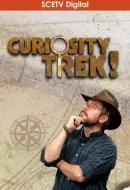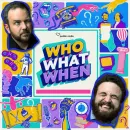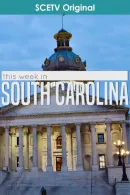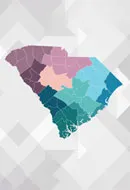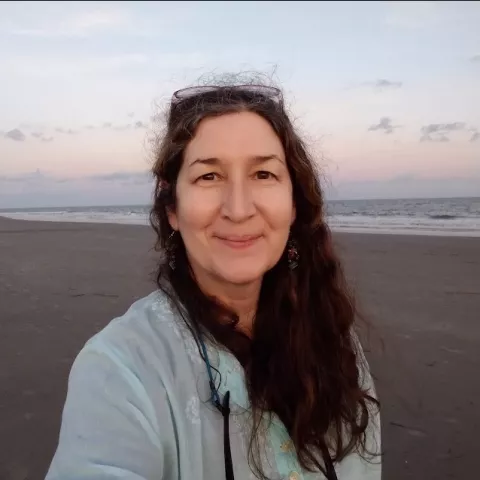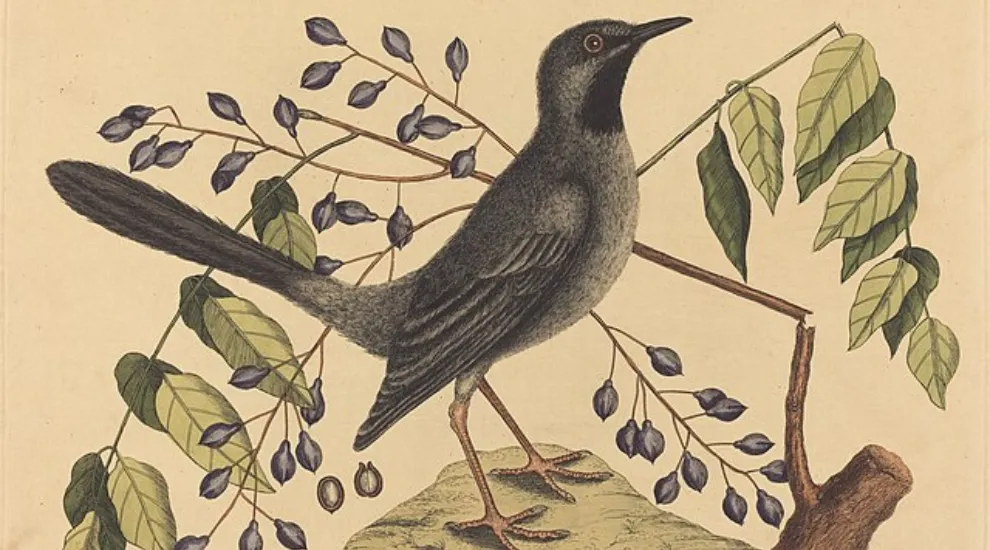
Earth Day, April 22, is a time to learn about, celebrate, and work to protect our planet. This year, for inspiration we can’t help but look to the work and example of recently deceased Rudy Mancke, our state’s beloved naturalist, educator and co-host of South Carolina ETV's NatureScene.
While ‘leave no trace’ is an important ethos for our environment, Rudy certainly made his mark and left a legacy, to South Carolina and beyond. Below, explore learning resources from Rudy’s catalog of work and get inspired for Earth Day with reflections from educators who took one of his courses offered through our ETV LEARN program.
Learning resources from the Rudy Mancke Collection on KnowItAll include assets from:
- NatureScene
- Nature Notes with Rudy Mancke
- Little Pee Dee River
- Santee National Wildlife Refuge
- Nature Comes Back - 25 Years After Chernobyl
- and more!
Educator reflections on "Exploring Naturalists Impacting SC & Beyond" course:
Initially launched in late 2022, this course was one Rudy had long-wanted to develop. Providing a survey of early naturalists mainly in the Charleston area through 21st century naturalists who have impacted our state and beyond, naturalists covered include Lawson, Catesby, Audubon, Muir, Leopold, Carson, and many more.
Of particular interest to Kristie Davis-Cox of Spartanburg School District Five was learning about naturalist Mark Catesby, best known for writing and illustrating the two-volume Natural History of Carolina, Florida and the Bahama Islands. (*The University of South Carolina University Libraries is home to five first-edition copies and offers a digital collection for viewing anywhere!) “His book is full of the most beautiful drawings. He actually cut birds open to look at the contents of their stomachs so he would know what flora to put in the picture of the birds!” Noting that Catesby “hiked hundreds of miles through swamps, woodlands, coastal areas and forests”, Davis-Cox reflects, “Can you imagine going to places that have never been explored? The nerve this must have taken! Well, maybe it was more than nerve…it was definitely passion!”
Katie Mills, also of Spartanburg District 5, shared, “Rudy continuously reminded us to look for connections in the natural world by considering, 'What is it?', and 'How does it fit in?'. Looking back at history it seems men and women have spent time observing, exploring, and learning about the world around them and found commonalities that stood the test of time. These connections, or relationships, in nature are mirrored in our lives. I think we can learn a great deal about ourselves by looking to nature for answers.
As a school counselor currently, I spend most of my time talking to young children who are attempting to make sense of the world around them. Much like early naturalists did when they were exploring, my students are stepping out into their worlds and trying to find their way. As we have learned throughout this course, nature is always growing and changing, that’s a constant. The same is true for my students. They are growing and changing just as the plants around us do.
Some of my students come from rich environments full of opportunities and nurture. However, many of my students come from less fortunate backgrounds or habitats, and either change and adapt or, unfortunately, really struggle to make connections and thrive. I feel my job as a counselor is to help all of my students see their value and find meaningful connections. Rudy shared the John Muir quote, “When you try to touch one thing by itself, you find it hitched to everything in the universe.” None of my students are alone, they are all part of something bigger. Rudy said if students can genuinely get excited about something besides themselves, like something in the natural world, they will have a richer life. In a world where we are more technologically connected than ever, I think we are increasingly less connected with each other, ourselves, and the natural world. Spending time in nature, away from a device, is a healthy coping strategy for a number of health issues, mentally, physically, and spiritually speaking. Observing the natural world allows one to feel grounded by engaging the senses and bringing the mind to the present moment. Playing in the natural world allows my young students to use their imaginations and be creative. They can engage in problem solving and find inspiration for other outlets such as reading, writing, or drawing. Giving students the space to experience a oneness with nature opens them up to learning about connections on their own. I hope to encourage these healthy relationships and make a small difference in the lives of my students."
Lyra Susan W. Timmerman, an educator with Greenwood School District 51, echoed "there was a theme woven through like a golden thread. It was that all things are connected....". As with Davis-Cox, she especially enjoyed learning about Mark Catesby, as well as John Abbot ("He was quite talented and he did many of his prints in one plate. Which, if you’ve ever tried printmaking, is quite a feat for an artist!"), and Aldo Leopold. "Learning about Aldo Leopold was particularly important to me as I will be taking a group of 7th and 8th graders to Camp Leopold later this month [2022] on a three-day adventure so this connects me with my students in a deeper way!"
"Having spent a good many of my summers as a child wandering about with my grandmother describing the plants in that Oconee area of upstate SC, the information about the Oconee Bell was a wonderful connection to my family and many fond memories. She was a tremendous role model for me when I was very young and she was very much like Rudy in that she pulled interesting things out of nature to ask me questions just like he did. “What is it? How does it fit in? What are the connections?” These are the golden threads woven through natural history!"
Interested in ETV LEARN's "Exploring Naturalists Impacting SC & Beyond" course or other courses developed with Rudy Mancke? Visit our Recertification Courses page at scetv.org/education/recertification-courses.
Happy Earth Day 2024; we have much to celebrate and protect!
